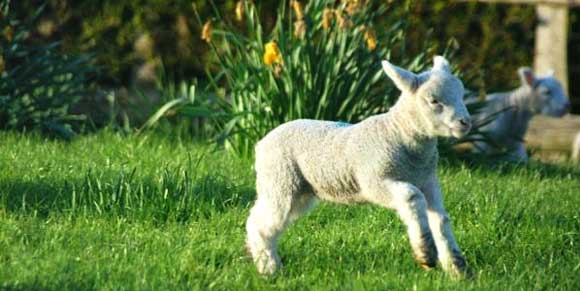In addition to looking at the impact your food has on your body and the creatures of the earth, it is important to consider the environmental impact. Food is like any other product produced for human use in that the production and distribution creates a carbon footprint. The goal in a green lifestyle is to reduce your carbon footprint. By avoiding environmentally unfriendly and harmful foods, you can reduce your carbon footprint and continue to help protect the earth.
Rank 5: Farmed Salmon
Many people who eat seafood opt for farmed salmon as opposed to wild salmon. This helps control overfishing of wild salmon, but does little for improving its status as an environmentally unfriendly food. However, for every one kilogram of farmed salmon produced, 11.9 kilograms of greenhouse gases are produced.
Rank 4: Pork
Any livestock raised for food is environmentally unfriendly. From the carbon footprint used to raise the livestock to the slaughtering to the transportation, it takes a lot of resources. Pork is a popular meat across the world, and for every kilogram of pork consumed, 12.1 kilograms of greenhouse gases are emitted.
Rank 3: Cheese
Since cheese uses livestock to create, it falls under that category in terms of its carbon footprint. However, since it is an animal byproduct, there is more involved in creating the cheese, which causes more impact to the earth. For every kilogram of cheese produced, the greenhouse gases produced equates to about 13.5 kilograms.
Rank 2: Beef
Hamburgers are available nearly everywhere, but unfortunately, beef is one of the worst offenders in environmentally unfriendly foods. Beef requires more feed to raise than other livestock, including lamb, which contributes to the carbon footprint of a full 27 kilograms of greenhouse gases for every single kilogram of beef produced.
Rank 1: Lamb
Lamb is considered the worst on the list of environmentally unfriendly foods. One of the biggest problems is that the majority of lamb comes from New Zealand rather than from local farms. The impact of transportation alone causes damage to the earth, and when this is added to the impact of raising and butchering the meat, it adds up to 39.2 kilograms of greenhouse-gas emissions for every kilogram produced.
One way to help reduce the negative impact of your food on the earth is to eat locally. Farmer's markets are an excellent resource of food that is more environmentally-friendly, and you may be surprised at the variety available of organic and vegan products, even in small towns.
Remember: the impact foods have on you does not end with your body. Everything you consume has an impact—positive or negative—on the world around you. Knowing exactly how products affect the earth and what products are more eco-friendly will help you along your path to greener living.


